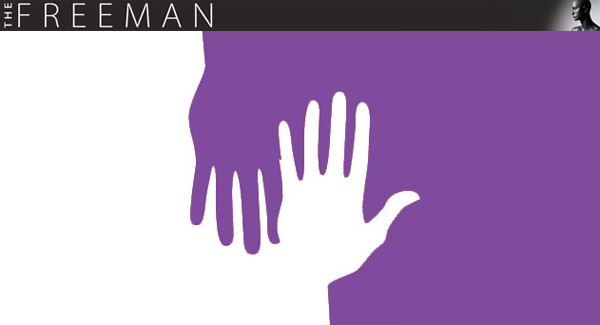Green Shoots Among the EcoReds
Business, Environment, Libertarian Theory, Technology, The LeftA Brief Background
I recently began leasing a Nissan LEAF. The $7500 Nissan takes off the top of the price, along with the $5000 tax credit issued by the state of Georgia, which is available even to lessees, made the car economically attractive for my daily commute. For those who are unaware, the LEAF is a fully electric vehicle which, when fully charged can provide 60-80 miles of range in typical driving. With practice, and with the right mix of traffic flow (electric vehicles typically benefit from stop and go traffic due to the regenerative braking they employ to recover power back into the battery), it is possible to go over 100 miles on a charge. But, range anxiety is a factor, and few people are willing to push the battery so much as to go so far between charges.
The Charging Issue
The Time Factor
Charging electric vehicles is the blessing and the curse of employing one as your daily driver. On the positive side, you can fuel your vehicle more cheaply, and from the comfort of your own home. On the negative side, charging takes much more time than filling a car’s tank, and the charging rate is much more important than the flow rate on a gas pump, as a 20% increase in time matters little when the difference is 10 seconds on gas, but becomes a big deal when the difference is 10 minutes to half an hour. Still, with planning, that issue is not as huge a deal as it seems. I’m comfortable with 90+% of the driving I do being in the LEAF. As I’ve looked to avoid having car notes, I keep one more car than is absolutely needed, so that one can be undergoing maintenance while I drive another. This lifestyle choice works well when owning a LEAF.
The Tragedy of the Commons
Many businesses offer free EV charging. That was the norm, outside of the home, a few years ago. Free charging, of course, caused paid options to be adopted more slowly. As the vehicles have become more popular, however, the crowds at the free charging stations have become larger, and the waits to use them have become longer. Waiting for an hour so that you can charge for another hour and go home is not a terribly appealing scenario. This fact has not been lost on LEAF aficionados, and many are now praising the availability of pay-to-charge sites. Many are lamenting the overuse, with people using the free chargers for too long, simply because they are free. Additionally, while Nissan’s own navigation system, included in some LEAFs, will direct drivers to a nearby Nissan dealer when the battery level becomes dangerously low, there are some dealers who apparently restrict the use of the EVSEs to their own customers only. And this phenomenon has generated some interesting discussions on forums such as My Nissan LEAF Forum. While there is outrage, there is also the understanding that businesses have the right to dispose of their own property as they see fit.
Welcoming the Free Market
The immaturity of the EV market has led to something of a crash course in economics for many on the left. Rather than decrying “money grubbing corporations,” many are celebrating the end of the scourge of “free” charging. There is finally recognition that resources are finite, and must be allocated through some means, and that trade is a vastly superior method for that allocation than “first come, first served.” Around Atlanta, there are pay stations popping up in various places, including in places where they used to be offered for free, such as at businesses. When businesses offer free charging, we see the same kind of resource hogging and lines that we see under socialism. When there is a fee, even if that fee is very modest, we see much more efficient allocation of resources. The difference in attitude between free and $3.00/hr is much greater, effectively, than the difference between $3.00/hr and $10.00/hr would be. When I took my family out last weekend to Ikea, we used one of the pay stations in the parking lot. There were two. They were both unused and available. A short walk away, at a free group of chargers, there was a significant line which would have required a wait (I only found out about the free charging after the fact, but it does fit in with my wife noticing a bunch of LEAFs grouped at one location as we were driving to Ikea). Charging the LEAF is typically not pricey. It costs less than $3.00/hr for “level 2” charging, which will typically add 20+miles/hr to the range. This works well for charging while you shop. There is also an option for very high speed DC charging, which can accomplish that same level of charging as L2 in a quarter of the time. Most of these stations are pay stations. The ones which are not are typically at Nissan dealers. There is also a free one at Agnes Scott. The usage on these chargers is lower because the ability to utilize them requires a paid-for option on the LEAF, and many owners do not have this option. One thing which I have noticed about the free DC chargers is that they tend to be broken much more frequently than paid ones. The equipment itself may require more maintenance, and it is certainly the case that an owner who generates income from the equipment is much more likely to provide that maintenance than one who does not.
Economics in One Lesson
The development of electric vehicles has been good. While not superior to their petroleum-fueled brethren, there is a role for the EV in cities and for people with very regular, predictable, and short-range driving schedules. The experience of owning or leasing one is also something of a crash course in economics for many who do not normally ruminate on such matters. This awareness may well mitigate some of the most socialist impulses among the environmentally conscious moving forward. Certainly, learning the lesson through such an experience is better than never learning it at all. The actual experience with poor resource allocation does more to increase the understanding of the importance of market forces than any textbook.
Green Shoots Among the EcoReds Read Post »



 In a recent post on my personal blog (
In a recent post on my personal blog ( My fixation on female national personifications continues:
My fixation on female national personifications continues: